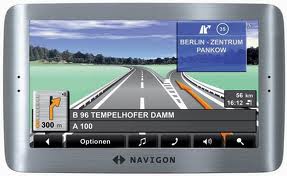GPS Tracking System Helps Bicyclists Raise Money For the Disabled
The possibilities of GPS technology applications for tracking people and assets are endless. Here is a great example of how GPS technology can be used to help bicyclists make the world a better place.
OnAsset Intelligence Inc. and Push America have come together to provide a location monitoring and tracking system for bicyclists on a 12,000 mile cross-country bike ride called the Journey of Hope, which raises funds for people with disabilities. The cross-country bicycle journey began last week in Seattle, and will start June 12 from San Francisco. Approximately 80 bicyclists are planning to ride into Washington, D.C. this year.
The tracking system will help to keep the bicycle riders safe. For example, if a rider gets lost or loses his riding partner, he can log into the tracking system and figure out where to go. If someone steals his bike along the journey, then authorities will be able to quickly recover the bicycle. The GPS tracking system also gives confidence to donors, whose donations are typically based upon the number of miles completed by the rider, because the donor can monitor the rider’s actual progress.
OnAsset Intelligence Inc. and Push America have come together to provide a location monitoring and tracking system for bicyclists on a 12,000 mile cross-country bike ride called the Journey of Hope, which raises funds for people with disabilities. The cross-country bicycle journey began last week in Seattle, and will tracking softwarestart June 12 from San Francisco. Approximately 80 bicyclists are planning to ride into Washington, D.C.
The tracking system will help to keep the bicycle riders safe. For example, if a rider gets lost or loses his riding partner, he can log into the tracking system and figure out where to go. If someone steals his bike along the journey, then authorities will be able to quickly recover the bicycle. The GPS tracking system also gives confidence to donors, whose donations are typically based upon the number of miles completed by the rider, because the donor can monitor the rider’s actual progress.















